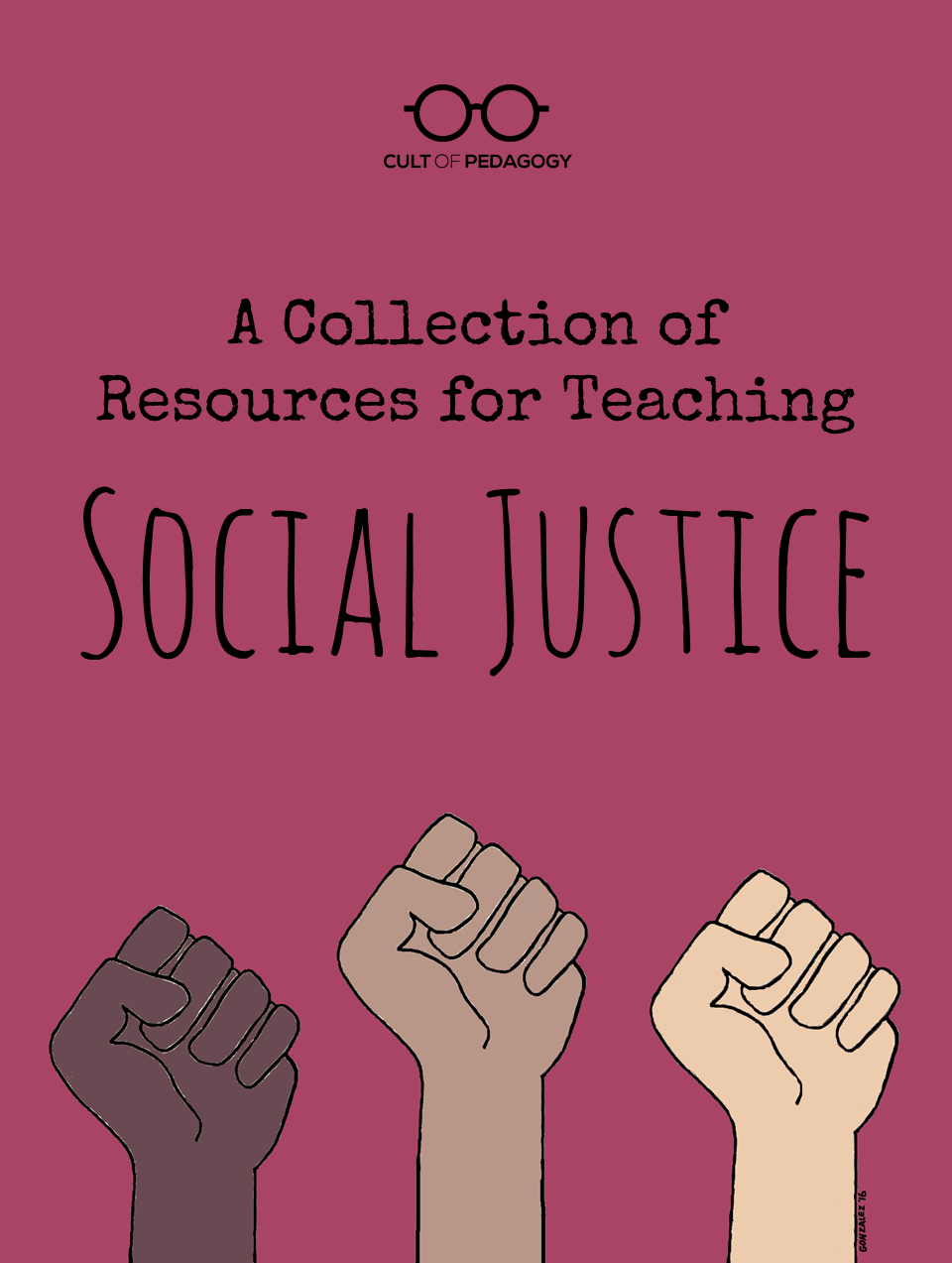
Ask teachers to describe the impact they hope to have on their students, and most will eventually say something along these lines: I want my students to grow into responsible citizens. I want my students to participate in society in an active, productive way.
And maybe: I want my students to change the world.
But how many of us know how to make that happen, really? Can we explicitly teach students how to change the world? If this question has been whispering in the back of your mind, the resources in this collection will help.
What is social justice, and how does it fit into the curriculum?
The National Association of Social Workers defines social justice as “the view that everyone deserves equal economic, political and social rights and opportunities.” To study social justice is to learn about the problems that dramatically impact quality of life for certain populations, and how people have worked to solve those problems.
If you teach social studies, you’ll have no trouble finding direct curricular links to social justice. The National Curriculum Standards for the Social Studies includes Civic Ideals and Practices as one of its 10 Themes of Social Studies, and this includes an emphasis on learning how to get involved in influencing public policy. In history and social studies class, social justice teaching is a natural fit.
In other content areas, teachers disagree over whether social justice has a place. We put ourselves in a vulnerable position by exploring issues that are seen as more controversial than others (a topic I will get into in the next section), and some teachers prefer to completely steer clear of those kinds of complications. For others, social justice was a driving force in why they became teachers, and they weave it into whatever content they are teaching. If you choose to address some or all of these issues in your classroom, the next section offers some tips for doing it effectively.
Some Advice for Teaching Social Justice
As an undergraduate, I served as a student counselor for three years and a resident assistant (RA) for one. I regularly delivered workshops on social justice topics, and I learned a few important lessons along the way. Here are some things to keep in mind when studying social justice issues with your students:
- Make getting to know students a key component of any social justice teaching. If you and your students don’t spend time examining your own backgrounds, biases, and beliefs, you will be missing an essential component of any social justice curriculum. We all view every social justice issue through the lens of our own experience, and these different lenses can block our growth and learning if we aren’t aware of them. If we fine-tune our self-awareness, our individual lenses can richly inform classroom conversations and help us understand issues on a much deeper level, directly from each other.
- Know that not all students feel the same way about these issues. Most, if not all, of these resources have been created from a pretty liberal, progressive viewpoint. For example, one of the lessons in the Learning for Justice (formerly known as Teaching Tolerance) series described below is on Confronting Unjust Laws. The lesson uses California’s Proposition 8 as an example of an unjust law. But not all of your students (or their families) will see a law like Prop 8 as unjust. In fact, some may strongly oppose same-sex marriage. That doesn’t mean you can’t talk about controversial issues; in fact, teaching students how to respectfully discuss an issue with people who don’t see things the same way is a lesson that will serve them for the rest of their lives.
- Familiarize yourself with the material before teaching. Sometimes we just skim materials before we teach. With social justice topics, this would be a mistake. Not knowing exactly what’s in all of your teaching materials, including the texts or videos you and your students will be looking at, can leave you vulnerable to problems when unexpected content pops up.
- Keep your administrator in the loop. As with any potentially controversial lesson, it is essential that you talk to your administrator about it ahead of time. Show the curricular connections between your planned lessons and the standards you’re teaching. Talk about potential problems or objections that may come up and how you both plan to address them. That way, if your administrator gets a phone call from a concerned parent, she or he won’t be blindsided.
Featured Resources
When I set out to find good resources for social justice teaching, I was looking for classroom-ready materials, lesson plans with supplementary texts or videos that would prompt students to learn about, think about, and talk about social justice issues. I also hoped to find some that would actually teach students about activism, about how a citizen zeroes in on a problem, formulates a solution, then does the grassroots work necessary to see that solution come to life.
Some of these resources fit the bill perfectly, especially the first one on the list. Others do not include lesson plans at all, but serve such an important and innovative role in social justice education, I thought they were essential to include here.
Learning for Justice
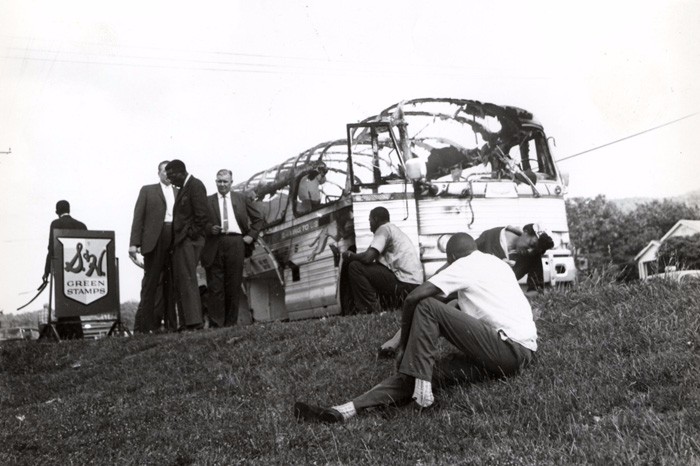
This award-winning organization (formerly known as Teaching Tolerance) comes up most often any time social justice teaching is discussed. There’s lots to explore on their site, including the Classroom Resources section, which is loaded with lesson plans and other resources teachers can use for free in their classrooms. One of these lessons is Confronting Unjust Practices, where students learn about the anti-segregation actions taken by the Freedom Riders and the attack on one of these buses in Anniston, Alabama (pictured above).
Other lessons from this library include What is Ageism?, Unequal Unemployment, and What Makes a Family? Lessons are available for elementary, middle, and high school students.
DoSomething.org
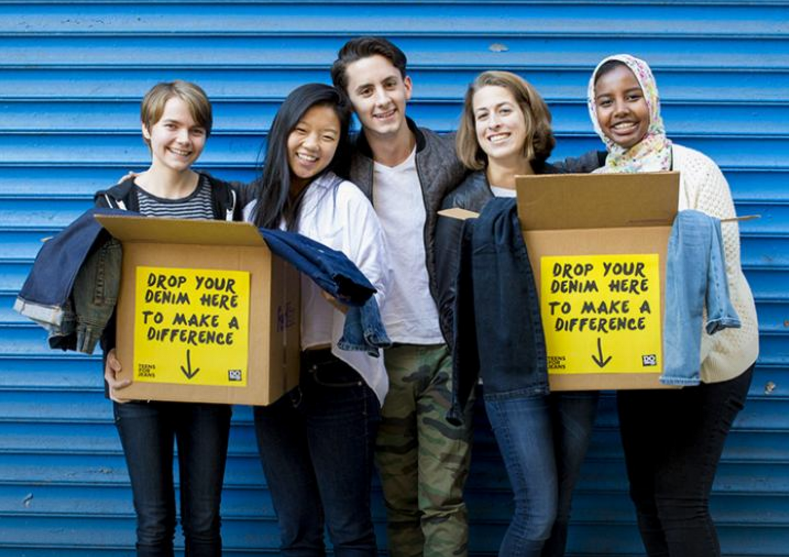
No lesson plans here: DoSomething.org is an outstanding organization whose goal is to support the work of young people who want to make a difference in their world. Students browse through a big list of campaigns, public education and activism projects students can launch right in their own communities, and choose one or more that they’d like to participate in. Once they have finished a campaign, students submit a photo or video to prove they completed the required steps. This entry makes them eligible to win prizes, including scholarships. Currently, only U.S. students are eligible for these scholarships, but DoSomething.org is expanding into other countries as well.
Although this site will not help you do any direct instruction about social justice, it provides incredible opportunities for students to actively participate in social justice projects. Most campaigns are just right for high school students, and some would be appropriate for middle schoolers as well. Some topics may be considered risque, so review the content before introducing it to students.
On a related note, DoSomething.org is the organization where Katia Gomez, the college student who started her own school in Honduras (featured in the first Cult of Pedagogy documentary last year), got her start. One more bit of trivia that totally doesn’t matter but might if you are a Melrose Place fan: DoSomething.org was co-founded by 90’s heartthrob Andrew Shue. Squeee!!
The Global Oneness Project
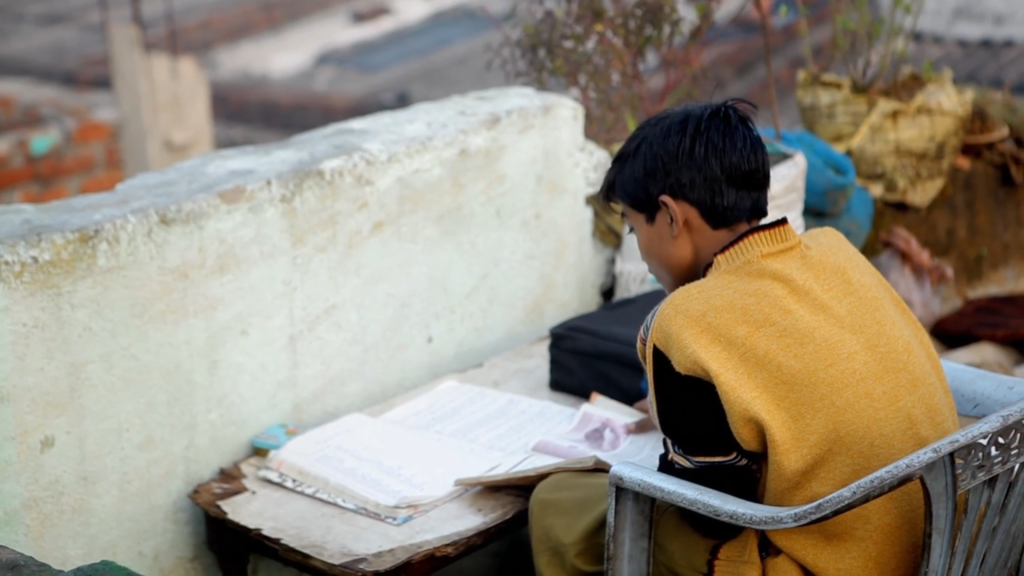
The Global Oneness Project offers a beautiful collection of multicultural films, photo essays, and articles that “explore cultural, social, and environmental issues with a humanistic lens.” Many of the featured stories are paired with a lesson plan for high school or college classrooms, aligned with Common Core and national standards.
One such pairing starts with the film Amar, which follows a young Indian boy living in a high-poverty neighborhood through a typical day that includes rising before dawn to do one of his two jobs and attending school. The accompanying lesson plan is called A Day in the Life, which has students examine the film and other resources related to the economic situation in India.
The films are truly stunning. This collection doesn’t include explicit teachings in any kind of civics or grassroots activism, but it will provide students with a deep understanding of lives completely unlike their own. And that kind of empathy is one of the most important building blocks for any kind of social justice action.
Pushing the Edge: Social Justice Resources Collection
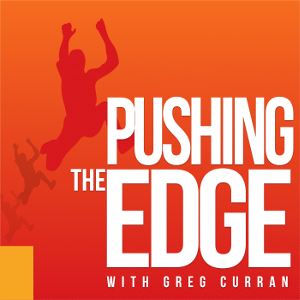
Educator Greg Curran’s podcast covers a range of educational topics, but quite a few episodes circle around issues of social justice. Recently, he curated these resources into a Social Justice Resources Collection. These episodes will be mainly useful for teachers to educate themselves about social justice education: what complications and questions come up, helpful do’s and don’ts, and why it’s worth it. He interviews practicing teachers and administrators who are walking the walk with social justice teaching. Listening to them will give you a template from which to build your own practice.
Here’s an example of one episode, where Curran interviews Nakisha Hobbs, principal of the Village Leadership Academy, a k-8 social justice school in Chicago.
GLSEN: Educator Resources
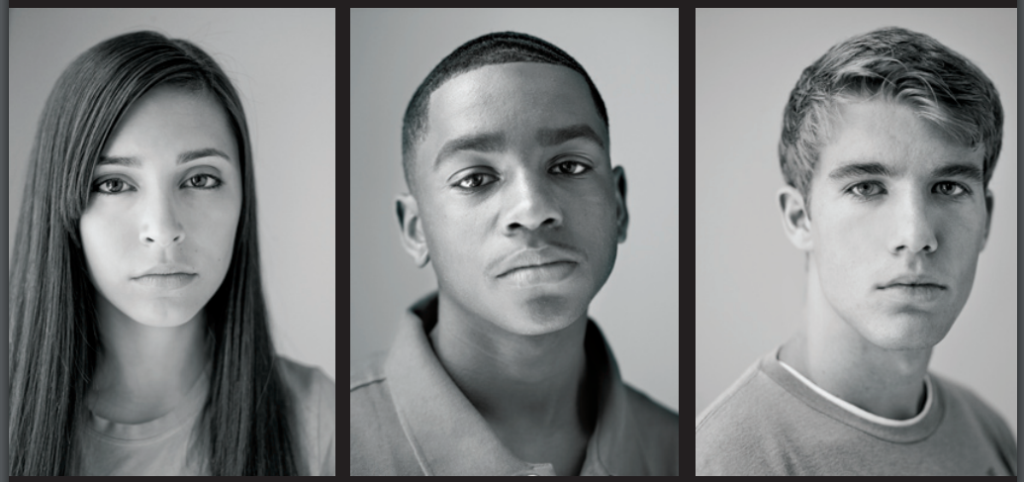
For teachers who want to include consideration of LGBT issues in their study of social justice, a great source for materials is GLSEN, the Gay, Lesbian & Straight Education Network. offers a nice collection of educator guides and lesson plans.
Here are a few examples: The ThinkB4YouSpeak Guide for Educators includes lesson plans, resources, and tips for teachers for addressing anti-LGBT language in the 6-12 classroom. Unheard Voices is a collection of audio interviews with “individuals who bore witness to or helped shape LGBT history in some way.” And the Day of Silence Guide shows educators how to run a Day of Silence awareness campaign in their schools.
Educational Video Center
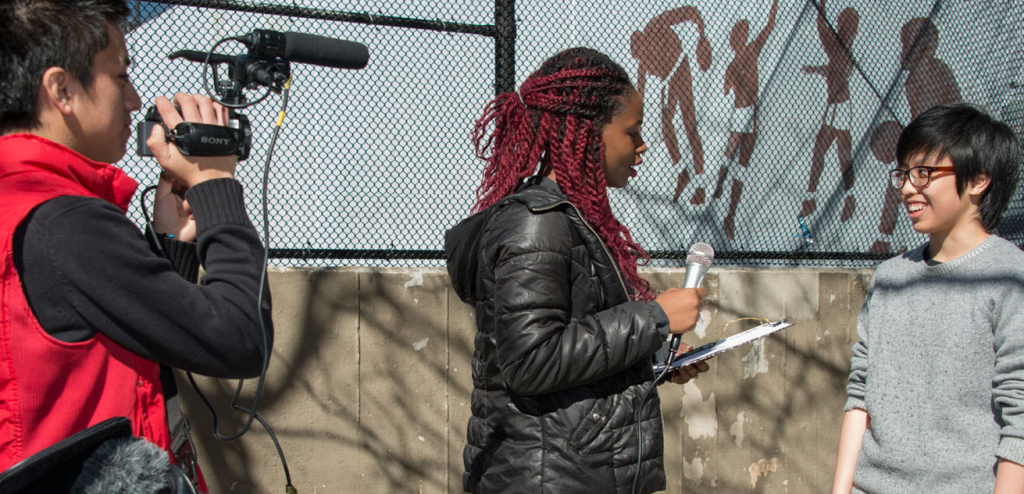
I love this idea: The Educational Video Center teaches students the skills of documentary filmmaking, telling important stories in the name of social justice. Although the EVC holds after-school workshops only for students in New York City, they do offer professional development for teachers anywhere who want to learn how to teach these skills to their own students.
Alumni of the EVC have created documentaries on everything from criminal justice to domestic violence to mental health. You can view a collection of trailers for student-created documentaries here.
The Two Dollar Challenge
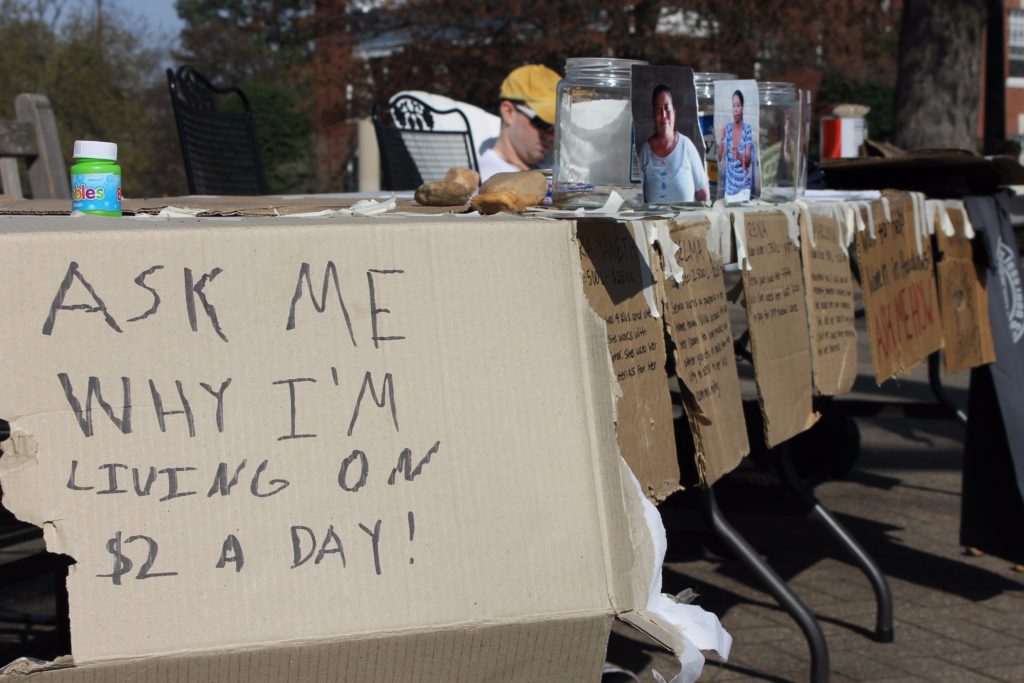
The Two Dollar Challenge is a challenge issued to people who want to make an impact on poverty. The challenge is simple: For 5 days, live on just $2 per day, publicizing the complexities of global poverty and helping to raise funds for a partner organization.
What’s most striking about this organization is their emphasis on cultivating a deep respect for people affected by poverty and raising participants’ awareness of their own privilege. One look at the project’s code of conduct shows just how serious they are about that mission: “At all times participants must respect those nearby who are truly in need. If at any time those taking the Challenge are using resources which are valuable for indigent residents in the area this action must be re-evaluated.”
Anti-Defamation League
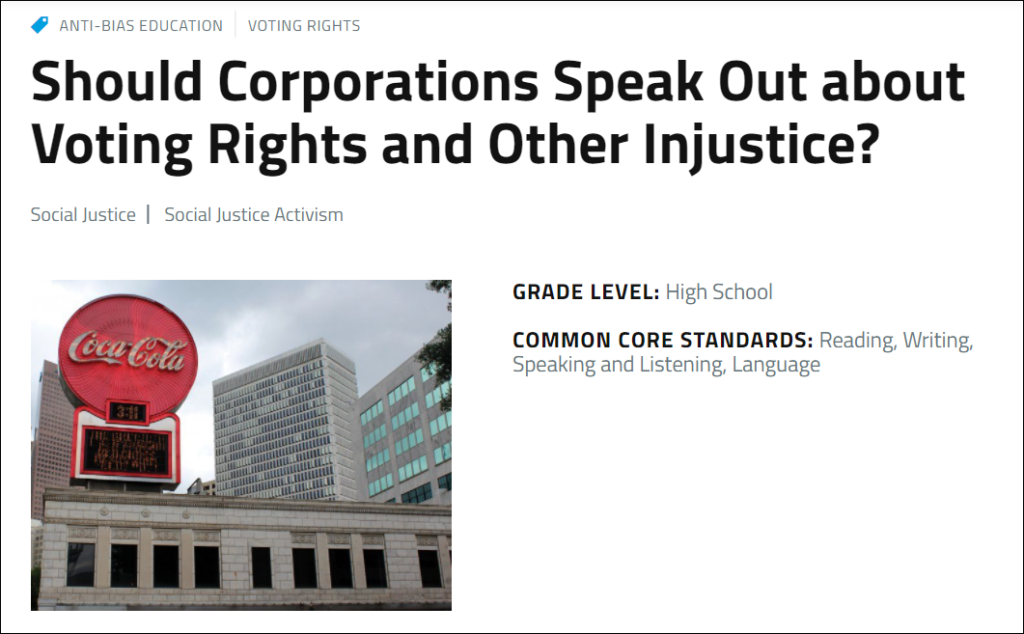
The ADL’s collection of lesson plans explore topics in categories like gender issues, sexism, ableism, religious bigotry, and racism. For example, What is the School-to-Prison Pipeline?, a lesson for high school students, has students study and discuss the impact of zero-tolerance policies in schools, statistics on the connection between school suspensions and the juvenile justice system, and their own school discipline policy. The end of the lesson offers students a choice of next steps for taking action on this issue. Lessons are available for preschool through high school.
Update: Since publishing this post, a few readers have pointed out that some of ADL’s other website content (separate from this curriculum) takes a strong stance on issues relating to Israel and may offend some users. I still feel that this curriculum contains incredibly valuable lessons on very recent events that you won’t find anywhere else, but this reinforces my second and third points above: Know your audience, and read through the materials carefully. For more details on this issue, please read the comments below. This article may also shed some light on the topic.
Further Reading
Stirring Up Justice
Laurel Schmidt, Education Leadership, May 2009
Explores the value and process of teaching students about activism. Offers a template for how to engage students in authentic conversations about difficult issues, ask themselves what they can do about social justice issues, consider ways they have already acted in the past, study how other kids and young adults have successfully solved problems, and participate in their own social justice projects.
Turning Current Events Into Social Justice Teaching
Jinnie Spiegler, Edutopia, January 6, 2016
Spiegler, the curriculum director for the Anti-Defamation League (the first resource in this post) offers advice on teaching social justice topics in a way that’s both sensitive and productive.
Educolor Resources
Educolor, an organization dedicated to an equitable, just education for everyone, maintains this list of books, movies, articles, and websites that will educate teachers and students on issues of social justice, especially as it pertains to educational equity.
The Best Teacher Resources Sites for Social Justice
Larry Ferlazzo, Larry Ferlazzo’s Websites of the Day, July 1, 2008
A big list of resources related to social justice education.
What Are Your Favorite Social Justice Resources?
This is by no means an exhaustive list. If you have a resource you like to use for teaching about social justice, please share it in the comments below. ♦
Join my mailing list and get weekly tips, tools, and inspiration—in quick, bite-sized packages—all geared toward making your teaching more effective and fun. To thank you, I’ll send you a free copy of my e-booklet, 20 Ways to Cut Your Grading Time in Half, which has helped thousands of teachers spend less time grading!

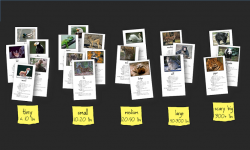
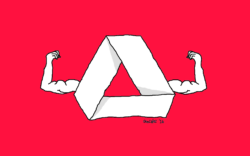
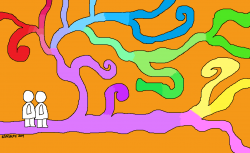
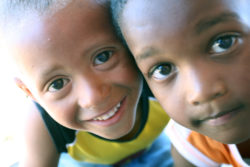
Great article with helpful resources! I’d also recommend the book, VITAL: A Torch for Your Social Justice Journey. It’s an approachable and practice guide to incorporating five values of social justice – Vulnerability, Identity, Trust, Authorship, and Liberation – into everyday life.
That sounds wonderful, Kyle. Thank you for sharing.
Thanks for the great resource. Another one would be the FREE, timely, downloadable Road to Racial Justice “Board” GAME available at http://www.roadtoracialjustice.org.
Teen and adult players will become aware that racism exists in many everyday kinds of situations (interpersonal and institutional), learn why each situation is racist (stereotyping, tokenism, cultural appropriation, etc.), and acquire tools to interrupt these situations. Played in teams. Curriculum included.
FOR CLASSROOMS, STAFF TRAININGS, COMMUNITY GROUPS, AND FAMILY GAME NIGHTS!
Your resources are absolutely brilliant. Thank you so very much for sharing all your wonderful ideas.
radicalmath.org
This site is pretty comprehensive for any math teacher looking to incorporate social justice into the classroom at any level.
Thanks for sharing that, Melissa!
I second that. Doing a project from there right now!
We ask our conference presenters (Creating Balance in an Unjust World Conference on Mathematics Education and Social Justice, also started by RadicalMath.org) to share their resources online http://www.creatingbalanceconference.org/resources/ and we are always looking for more great content to share. Teachers can upload activities and resources to share with others. Also, we have an online community for folks to collaborate, please join us! https://www.facebook.com/groups/1055969884467435/
Kari, thank you! Excellent resources!
Thanks for your great podcast and articles, I love your work! And thanks for adding my comment. (Our next Creating Balance in an Unjust World Conference in an Unjust World Conference on Math Ed and Social Justice will be in 2018, I will let you know when we have decided on a date/location). Thank you!
Thank you for these great resources, and for your own insights into best practices for teaching social justice.
I checked out the Anti-Defamation League and they have some great resources. I especially love that despite being supportive of the State of Israel, they had some lessons against Anti-Muslim bigotry and about how to be an ally to Muslim citizens.
Looking through their resources on Israel and Palestine, I find a lot of skewed information against Palestinian’s humans rights and for human rights violations committed by Israel. If you’re presenting them as a resource for teaching about social justice, I do think it’s important to address that bias in the description of the resource.
Hi Susan,
Thank you for sharing this. I have added additional information to the listing for the ADL.
I’m astonished that y’all have a problem with the ADL, which fights anti-semitism among all other -isms. I guess it’s okay to hate Jews these days under the guise of political disagreement with Israel. J. Gomez, your own comment that the resources are useful “despite” the ADL’s pro-Israel stance is just a legitimization of anti-semitism. Apparently, there is always one -ism that’s going to be just fine with everyone.
I also highly recommend Better World Education, http://www.betterworlded.org/ , they have great teaching resources
Thank you for sharing this, Marie Claire.
Yes I also am concerned about ADL as they are notoriously Zionist, pro gun & spied on Peace activists in Bay Area years ago. Self centered concept of social justice.
We’ve been putting together some of our school’s favorite social justice education resources on a Pinterest Board: https://www.pinterest.com/ybcharter/social-justice-in-education
We’re definitely adding this to our list! Thanks for sharing these fantastic resources.
Please take a look at RFK Human Rights educational program called Speak Truth To Power. It has a fully aligned curriculum that is free online. Based on interviews Kerry Kennedy ( Robert’s daughter) had with human rights defenders world wide on every human rights issue. There is a play called Voices From Beyond the Dark:Speak Truth To Power by Ariel Dorffman that is an excellent play to put on in schools also! Here is the website: http://rfkcenter.org/what-we-do/speak-truth-power/
Saying Prop 8 is controversial is the same as saying segrated schools is controversial. Both were struck down by the US Supreme Court under the same legal test. Using that as an example demonstrates your bias. There is no classroom that should suggest treating others differently under the law is okay.
Hi Jim. If I have any bias, it comes from living in a state that has a history of voting against any policy that would improve civil rights for members of the LGBT community, and being part of the local movements that have pushed for improving those rights. I am all too aware of the opposition to LGBT rights in this country. Calling the fight to legalize same-sex marriage controversial has nothing to do with standing on the side of those who oppose it.
this is brilliant Jennifer! So simple and needed in today’s schools curriculum. In New Zealand, to our discredit, schools fail to include historical accounts of our first nations indigenous peoples, and of course as a consequence our kids miss out on fundamental philosophical concepts through their formative years. Lots and lots of other issues too that can be a part of the important social justice discourse for the development of our kids. As and educator I will most certainly share this article widely.
Thanks, George! I’m surprised to know that there’s limited teaching about the Maori people in your schools (did I get that right? I studied some lit from Australia and NZ in grad school, and the book and film Once Were Warriors still haunts me). I’m so glad to know you’re finding value in this collection!
I love just about everything you share and especially love this post. I’ve referred to it several times already and plan to use these resources for my thesis and National Board work. Thanks!
Hi Ann! Thanks so much! I’m happy to know these resources may reach more students as a result of this post. Good luck with your boards!
I also recommend Radical Math for the socially aware math educators who want to add some social justice into their math curriculum!
http://www.radicalmath.org
Bryant, thank you!
Although it’s an older resource, I like the activities in Rethinking Mathematics: Teaching Social Justice by the Numbers (edited by Eric Gutstein and Bob Peterson). Although I don’t teach math, I like the cross-curricular application of math to teach topics in social studies and English classes.
This link includes a “Table of Contents” list: http://www.rethinkingschools.org/ProdDetails.asp?ID=9780942961553&d=toc
Hello, I am a student in the mathematics secondary education program at the University of Illinois and I am preparing for student teaching in the spring semester. In my classes we spend a considerable amount of time discussing culturally relevant math teaching and including social justice in our lessons. Furthermore, I also work on campus as an RA (resident adviser) where I have an opportunity to learn about and discuss a lot of different social justice issues/topics. Still I understand there is always a lot to learn. Despite all this I still am struggling with finding ways to incorporate these topics into math lessons where I also have to include math standards, accommodations, and differentiation for students among many other requirements. So I really appreciate the resource you provided as well as all the above resources. These concrete examples will surely take a lot of pressure off of me as a beginning teacher. Thank you!
Rethinkingschools.org and ZinnEdProject.org have an incredible amount of social justice resources.
Thanks for sharing these, Rachel.
Yes, these would make great additions to your already amazing list of resources. I especially like the trial activity in the book Rethinking Columbus.
I strongly object to the use of any ADL resources on a site claiming to promote social justice. Even Jewish groups speak out against ADL. One cannot cherry-pick social justice issues. The ADL is a major proponent of anti-arab racism vis a vis its blanket support for the apartheid/racist policies of the state of Israel and their attempts to silence activism in support of Palestinian rights in the US. If this was a group that had good resources on one social justice issue but supported misogyny in other areas – I doubt that you would continue to use them as a resource. It is a real and problematic double standard among progressive people that somehow it is ok for groups deny Palestinian rights as long as the group is ok on other issues. They have also taken stances in support of police violence in the context of the Black Lives Matter movement: (http://www.ijan.org/new-opinions/the-anti-defamation-league-sticks-to-what-it-knows-best-racism/) “In the wake of the decisions not to indict officers Darren Wilson or Daniel Pantaleo for murdering Michael Brown and Eric Garner, the Anti-Defamation League (ADL) – a Jewish organization purportedly founded to fight racism and anti-Semitism – has revealed itself to be once again standing on the wrong side of history. Not only did the ADL urge “calm” of protestors in the face of righteous anger against the state murder of Black people across the United States, they also stood with the St Louis grand jury: “we respect the grand jury’s integrity and their commitment to meeting the heavy responsibility thrust upon them.” And, adding insult to injury, the ADL praised the NYPD despite the shameful and brutal murder of Eric Garner and the midst of their violent repression of protestors.”
brooke, i appreciate this post. thank you for defending palestinians. the ADL is currently training american police officers in israel, and with how well the american police force deals with its own citizens (read: murderous, esp with indigenous and black folks), then we can only assume what will come from this. more murderous racism, more hatred and more calls to “protect israel” (also see legislation to criminalize BDS) at the expense of palestinians here and abroad and black and indigenous folks here in the US. the ADL is a hateful, racist organization disguised as a just one. i agree with you that one should not align with ADL if one is going to purport to be committed to social justice. thank you for sharing.
Please be aware of the source Brooke Atherton cites. From the charter of the International Ant-Zionist Network: “It [Israel] continues a long history of Zionist collusion with repressive and violent regimes, from Nazi Germany to the South African Apartheid regime to reactionary dictatorships across Latin America.” Accusation of Jews as racists, settler colonialists and world conspirators is dangerously close to anti-Semitic.
I appreciate the comments and contributions of everyone who visits my site, and the concerns about the ADL outside of the context of their social justice curriculum have been voiced here. I do not wish to open up the floor for any kind of back-and-forth debate on the Israel/Palestine issue; this is way too complex of a problem to be handled on the pages of a teaching website. I still feel that the ADL’s social justice materials are exceptionally good, and because they make no mention of the Israel/Palestine conflict, I believe teachers can make up their own minds about whether to use them.
Thanks for the article! I thought it was interesting that you suggest getting you know each students background in order to better teach the social justice curriculum. Viewing each issue through just our point of view can create a specific bias and can block our growth and learning. I once had a teacher that made sure we understood every aspect of a situation in order to make an educated decision. This always made learning about new and challenging topics more enjoyable. I really appreciate your input, I hope to apply it to my own teaching style.
Great set of resources! Readers might also be interested in Preparing to Teach Social Studies for Social Justice: Becoming a Renegade, which features advice, lesson plans, and strategies from 20 justice-oriented social studies teachers. Letters from the teachers and details about the project are at http://www.socialstudiesforsocialjustice.com, or you can find the book at http://store.tcpress.com/0807757667.shtml
Thank you so much! I will be using this at home with my daughter
I strongly recommend checking out the Samantha Smith Challenge at http://www.americanswhotellthetruth.org/the-samantha-smith-challenge
Peter, thanks for sharing this!
Thank you for all the resources. I would like to add Teaching for Joy and Justice by Linda Christiansen. It’s a book. Contains lesson plans, reflections, and student work. Very well-written and just plain wonderful and inspiring.
Hi there. I was wondering if you could take a look at my Grades 5-8 activist graphic novel, whentherulesarentright.com. AFT has endorsed it, and have created a lesson plan. It focuses on worker and women history and motivates kids at the end of the book to determine how they want to make a difference. Thanks so much, Leslie Tolf
Hi, Leslie!
This is Holly Burcham, a Customer Experience Manager. Please send us a link through our contact page and we can talk further there.
Thanks!
I second the addition of Rethinking Schools materials for this list — I use them all the time in my work preparing social justice educators (aka science teachers!).
Thanks for this website — I will be adding it to the recommended reading for my teacher candidates this coming year!
This was SO needed! Thank you for sharing, looking forward to using this within my classroom/school building!
Americans Who Tell the Truth is a great resource for social justice work in the classroom. The site presents over 200 Americans who have taken stands on multiple issues from the environment to civil rights. These people are motivational and informative guides for students working on social justice issues. http://www.americanswhotellthetruth.org
Lots of good resources here. You may also want to review those at Facing History and Ourselves:
https://www.facinghistory.org/educator-resources.
Hello!
My name is Juliana and I am a teacher in Ontario Canada. I recently stumbled upon your website and found it very helpful. In light of everything going on in our world, it makes me want to teach my students to be better citizens and understand diversity and culture and race. I enjoyed the ideas you had on your website, but was wondering if you knew of anyone you could connect me with, or if you have any other ideas or lessons that I could incorporate in my classroom regarding teaching my students about diversity, culture, race, bias, and love. If you don’t, that is okay, I just thought I would try ! I am looking for lessons that would be suited for elementary school students (Primary or Junior specifically)
Thanks,
Juliana
Hi, Juliana! I’m a Customer Experience Manager with Cult of Pedagogy. If you haven’t already, I suggest checking out our Race/Culture/Class/Social Justice board on Pinterest. You might also want to take a look at 7 Books That Teach Kids About Social Justice and Activism, 13 Children’s Books That Encourage Kindness Towards Others, and 20 Multicultural Children’s Books about School. Hope this helps!
Such an important topic, thank you for sharing. Please take a look at a blog written by our Head of School, Matt Micciche titled “What These Times Demand of our Schools.” http://blog.friendsbalt.org/why-friends-right-now
Looks like I am late to the party. Obviously the need for this has grown exponentially. You absolutely nailed it, and included some of my favorites. Please also add http://www.teachersagainstprejudice.org. If anyone sees this and needs social justice songs, or would like to suggest a topic for me to write about (I will give it to you when I am done recording it) please feel free to get in touch via my website. Thanks again for the great article and resources! ✌🏼️💁🏼🎶
I think this is the most important issue to teach in a classroom, honestly. I think that one of the bigger things is also to see the global picture behind social justice. For example, there is a great documentary on the 2 dollar a day issue that I used in my class that also helped us explore how views on the issue could differ from the point of view of those making the documentary (students from the US) and my students (in Ecuador). Thank you for such a great article.
hello there. thank you for compiling this list. i do wonder what your stance is now on differing “opinions” — you mention that not all families will support LGBTQ rights, Palestine and so on. i just want to tell you that bigotry toward any race, sexual orientation, or any sect of people is not an opinion but is bigotry. this is what i teach my students. preferring vanilla to chocolate ice cream is an opinion. preferring heterosexual people to queer people is not; it is rooted in the oppression of a people based on an inherent characteristic of a people that dominant society would rather not let flourish. anti-semitism is not an opinion and millions of jewish people and 5 million others were killed for it. we do social justice a great disservice when we frame these bigoted and harmful ideologies as merely “opinions”. i hope you see the difference.
Hi Dena. I have changed the wording in the paragraph about people with different opinions to “people who don’t see things the same way.” However, I realize this does not really satisfy the point you’re making. I have learned a lot in recent months about the inaccuracy of framing bigotry as a different “side” of an issue. I hope that my revision has at least removed the suggestion of a false equivalence.
thanks for changing the wording and your reply.
Jennifer, if the KKK were providing some good resource material on social justice, would you include it here? I think not. Therefore, I encourage you to delete the reference to ADL materials. As toxic as it is, the KKK is not supporting an ongoing mass genocide, as is the ADL. Surely you can find good materials from sources that are not bloodstained.
Gus, I definitely would not share anything published by the KKK, because I am familiar with their hate-based work and how they continue to leave a violent mark on this country. I am trying to find information on the ADL’s support for ongoing mass genocide, but I can’t find any. If you can please provide a source, I will take a look.
I am planning a year-long social justice project with my seniors. My plan is to have them form groups of 4-5 learners, identify an issue that they feel is important/meaningful to them, and research it. Along the way through the school year, I want them to seek out organizations related to their chosen issue and possibly “team up” with someone from that organization. The “end product,” I hope, will be a multi-media presentation to our BOE, administrators, interested community members, etc… that includes a history of the issue/legislation past and present, what organizations are available to help those affected by the issue, how to educate the public, etc… Once we get started (end of September), every Friday will be dedicated to working on this project. If anyone has any thoughts, ideas, suggestions (or warnings, hahaha), please let me know!
Hey Dee! I got kinda all excited reading this — sounds like a Genius Hour and PBL, the best of both worlds working together! I realize this isn’t the space where you could go into tons of detail, but being a year-long project, I’d just make sure kids have a very clear direction and purpose so each week they have a plan and are self-driven. Have fun!
Thank you so much!